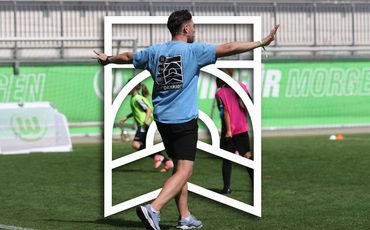Coaching with Inclusion in Mind: Ken Black on Supporting Children with Disabilities in Sport
In his engaging presentation, Ken Black—co-founder of The Inclusion Club and a leading advocate for inclusive sport—shares practical insights on how coaches can better support children with disabilities in physical activity and sport. Speaking as part of the ICOACHKIDS initiative, Black emphasizes that inclusion is not just a moral imperative, but a pathway to better coaching and richer experiences for all children.
Black begins by addressing a stark reality: children with disabilities are significantly less likely to participate in sport than their non-disabled peers. This disparity is not due to a lack of interest or ability, but rather to systemic barriers—ranging from inaccessible facilities to untrained coaches and low expectations. His message is clear: every child has the right to play, learn, and grow through sport.
Central to Black’s philosophy is the idea that inclusion is not about treating everyone the same, but about recognizing and responding to individual needs. He encourages coaches to adopt a flexible, child-centered approach that focuses on ability rather than disability. This means adapting activities, using creative communication strategies, and fostering environments where every child feels safe, valued, and capable.
One of the key tools Black introduces is the TREE model—Teaching style, Rules, Equipment, and Environment—a practical framework for adapting sport activities to meet diverse needs. For example, modifying the rules of a game, using different types of equipment, or adjusting the playing space can make a significant difference in a child’s ability to participate and enjoy the experience.
Black also highlights the importance of coach education. Many coaches, he notes, feel unprepared or anxious about working with children with disabilities. Providing them with the right training, resources, and support can build confidence and competence, ultimately leading to more inclusive and effective coaching practices.
Beyond technical adaptations, Black stresses the emotional and social dimensions of inclusion. Coaches play a vital role in shaping attitudes—both their own and those of the children they coach. By modeling respect, empathy, and open-mindedness, coaches can help create a culture of acceptance and belonging.
The presentation concludes with a powerful reminder: inclusion benefits everyone. When sport environments are designed to accommodate a wide range of abilities, all children—disabled and non-disabled alike—gain from the diversity of experience, perspective, and interaction.
Ken Black’s message is both inspiring and actionable. By embracing inclusive practices, coaches can unlock the potential of every child and ensure that sport truly is for all.
You can watch the full presentation below
Comments
Related Pages


